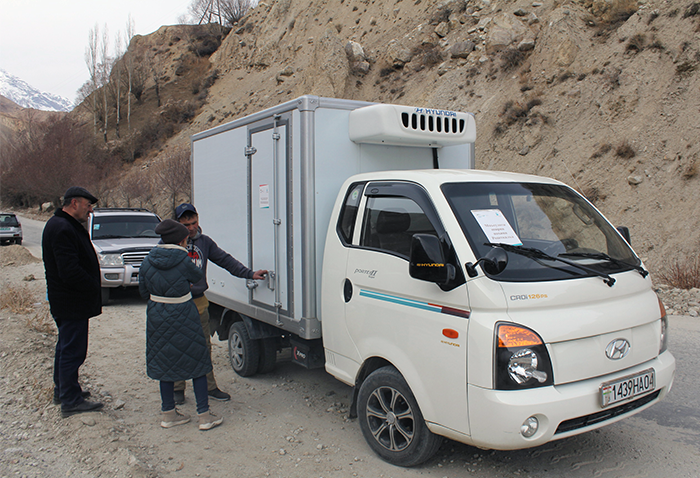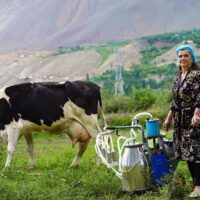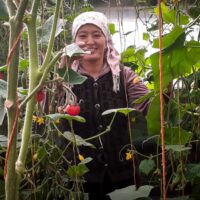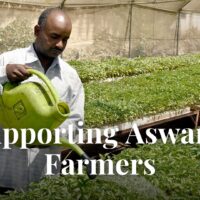Roshtqala district of Gorno Badakhshan Autonomous Oblast (GBAO) in Tajikistan is home to abundant fruits and gardens.
Fruit and dairy farmers in the district would like to improve their businesses and increase the goods that they can take to nearby markets. However, they faced challenges in finding storage to keep their fruit and milk fresh.
Thrive Tajikistan, a partnership between the Aga Khan Foundation (AKF) and United States Agency for International Development (USAID), is supporting farmers in Roshtqala by building storage facilities to increase and preserve their harvest. Since 2018, the Thrive Tajikistan: Partnership for Socio-Economic Development program has been working to improve the quality of life for people living in Khatlon and GBAO.
Thrive started constructing the fruit storage facility in Roshtqala in September 2021. As of February 2022, construction is close to completion and has provided 10 people in the village with temporary jobs.
“Before building the storage, the fruit spoiled, and they only could use it for livestock. This is one of several storage facilities that have been built by the Thrive program throughout GBAO to help small farmers keep and bring their harvest to the market,” said Thrive Project Officer, Ofarid Okimbekov.
“The facility can store 50 tons of fruit. The neighboring villages also can bring their fruit here to keep it until the lean season,” Ofarid continued.
On February 14, TV Badakhshan, a state-run regional television service, broadcast a special news report about the new storage facility in Roshtqala. View the broadcast in Tajik below.
Thrive is also supporting fruit farmers in Roshtqala by creating fruit cultivation clusters. Cluster members have access to the new storage facility, which is helping them improve profits from their orchards.
“The villagers are now able to make more profit by selling their fruits when the price is higher in the market,” Ofarid said.
Bringing More Milk to the Market
Thrive also brings dairy farmers into village-level producer groups and district-level clusters so that the farmers can share their experiences and best practices with each other, along with discussing how to improve marketing and access agricultural research to improve production.

Alidod Mawlododov, head of the Roshtqala district milk production cluster, said, “My cluster brings together five producer groups in which 15 to 18 members in each group sell milk. Since 2019, we have sold more than 60 tons of milk to the Khorog market. At one time, we take 400 liters of milk to the market.”
Thrive worked with the cluster to establish a milk collection point in Zanuthj village in 2021. The cluster established the milk collection point and Thrive provided a refrigerator and milk tank that keeps milk fresh for three days. This gives the dairy farmers the ability to sell milk to customers at markets in Khorog and across the district. The German development agency, Deutsche Gesellschaft für Internationale Zusammenarbeit GmbH (GIZ), also donated a car to the cluster and made updates to the building under one of their projects.
Shirinkhon Qurbonkhonov, AKF’s expert in agricultural production, said that Thrive has enabled 105 milk production cluster members to start selling milk.
“In 2021, the members’ annual income reached more than TJS 315,000 (USD 27,876), and this has motivated them to double their dairy cows.”
TV Badakshan also reported on the new milk collection point in Zanuthj village. See their coverage of the new facility below.
z z z



